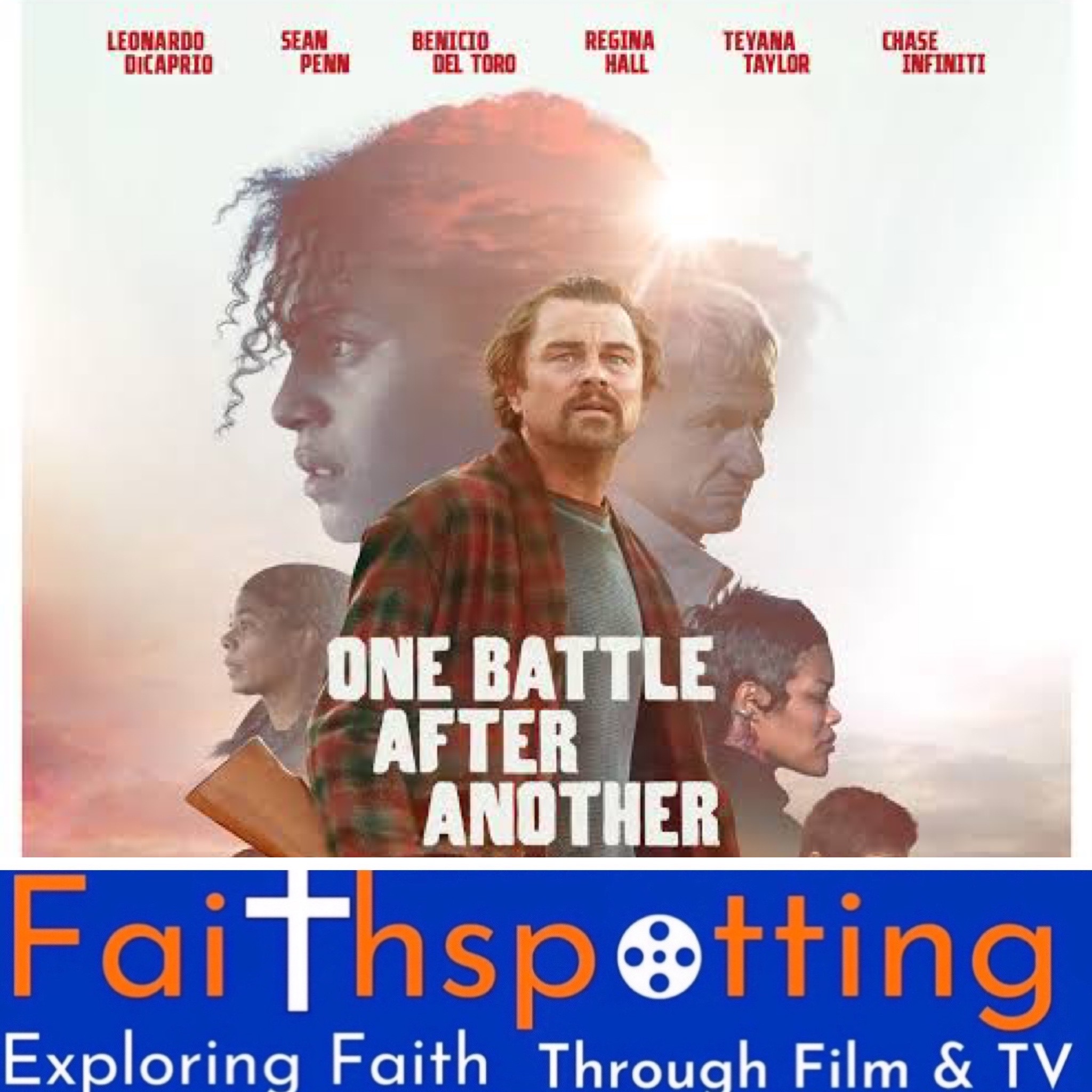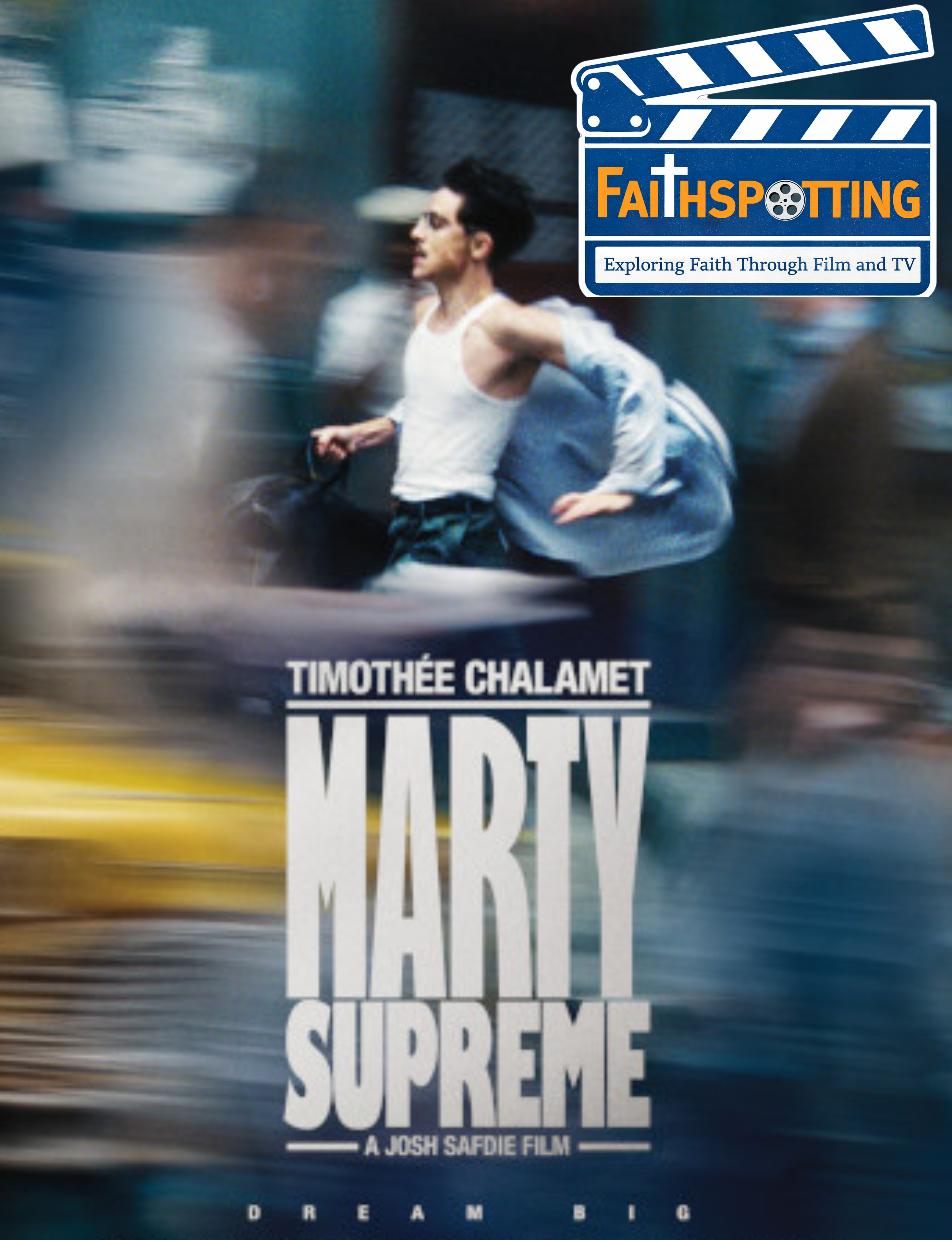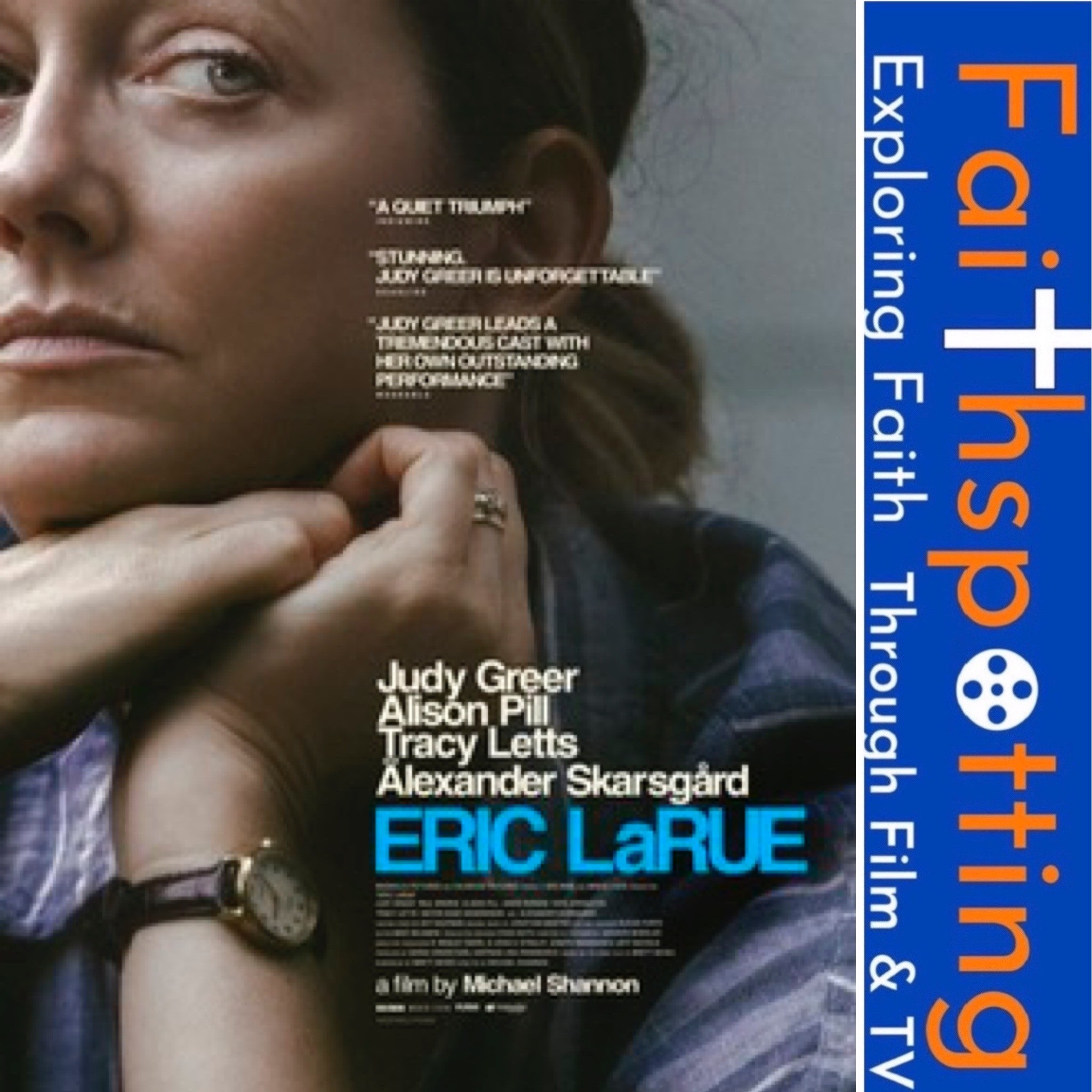Faithspotting "East of Wall"
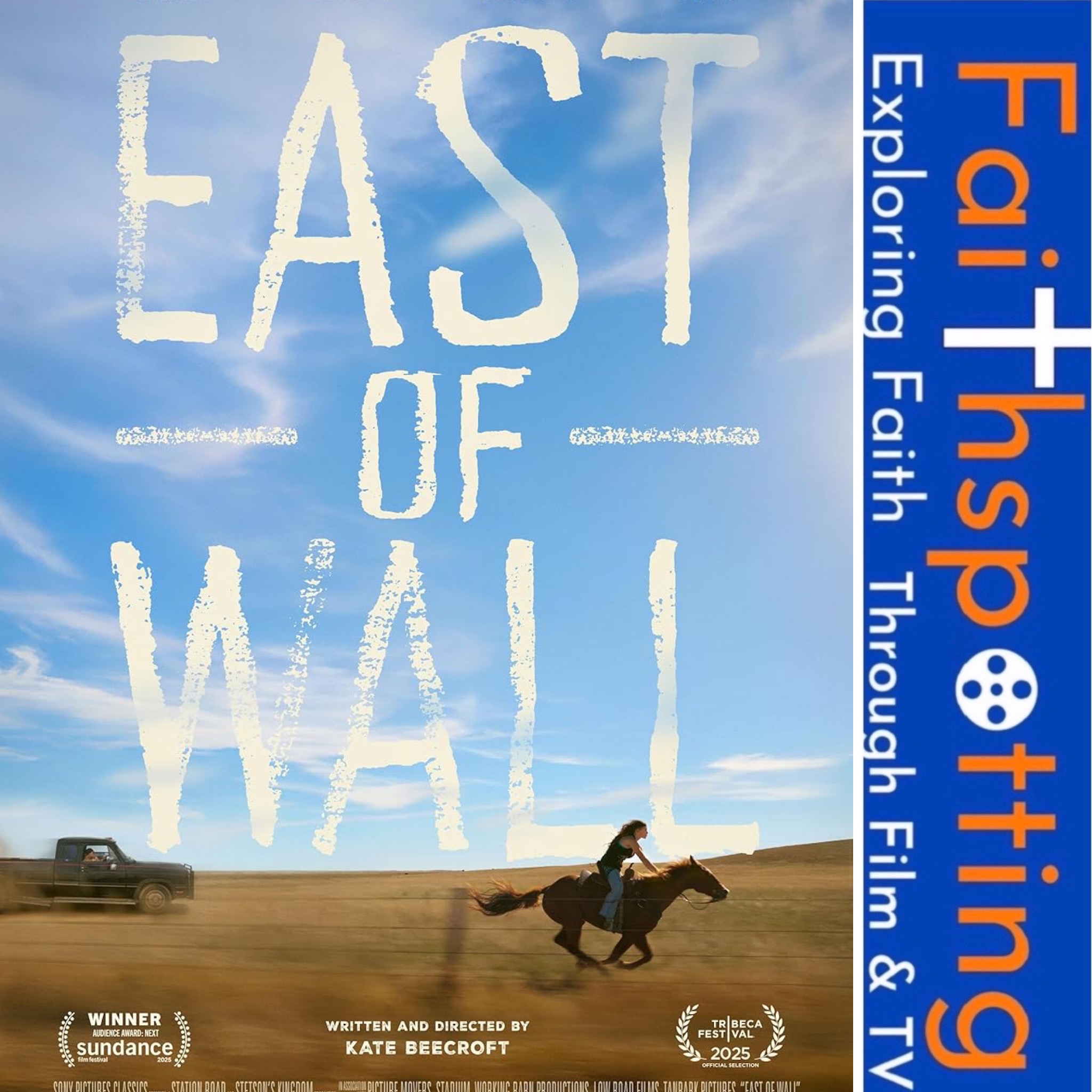
Kenny and Mike review and spot faith reflected in the Sony Classic film East of Wall. The episode includes Mike and Kenny's interview with director Kate Beecroft and the film's stars and subjects, Tabatha (Tabby) and Portia Zimiga.
While not a documentary, East of Wall is a "docu-fiction" drama based on the lives of the Zimigas, the wayward teens who have found a place and home on her ranch, as well as other women in the area. Tabby rescues and trains horses from slaughter pens and sales them in sale barns in and around Wall South Dakota. Portia is a gifted rider and rodeo barrell racer. The Zimiga's and the teens are still working through the death of Tabatha's husband and stepfather to Portia as well as stuggling financially to keep the 3000 acre ranch going and provide refuge for the teens. In addition to Tabby and Portia, the vast majority of the cast are persons playing themselves. The two non-actors in starring roles are Scoot McNairy who plays Roy Waters, a Texas rancher who is interested in purchasing the ranch, and Jennifer Ehle who plays Tabby's mom, Tracey.
Althought it echoes Nomadland in both look and feel as well as using non-professional actors, East of Wall is grittier and goes deeper into the lives of the persons portraying themselves. The film has an even stronger kinship with the neo-realism style of the post-war Italian cinema.
In the midst of the struggle there is beauty in the love and trust of the community that includes the Zimigas, the teens, as well as other women friends and family who have experienced struggles life in "the new west."
The film is set against the backdrop of the South Dakota Badlands which not only provides beautiful cinematography but is also a visual symbol of the desolate looking but also rich life on the ranch and throughout the area.
The story behind the making of the film echoes much of the film's themes and adds to the experience of watching or reflecting on the film. Kate Beecroft and her director of photography were driving throughout the country looking for stories that could be made into a short film. They literally stumble across Tabby. This story is included in the interview.

Faith Spotted:
The transformative nature and power of story, trust and commitment within community. Such is depicted in both the film as well as the relationships between the director and cast.
As the film reflects the "new west" in the age of changing demographics and greater financial pressures on farming and ranching, the film also reflects what is likely to be the "new Church," where the focus is more on being in relationship and community with persons outside the walls and rolls of the church than maintaining such walls. Though most churches and members acknowledge that the Church "is not a building or steeple, but people," churches too often struggle to actually get out from behind the walls, get, and be in ministry, with persons in the community. The mission of the Church is north, south, wast and east of it's walls. The church needs to be more like, as Kate described the teens, "fierce and feral in the best way possible."
Kate would not have been able to make the film had she not been fully invested in the people and their stories. This reflects the incarnational purpose and nature of Jesus, God with us, as us.
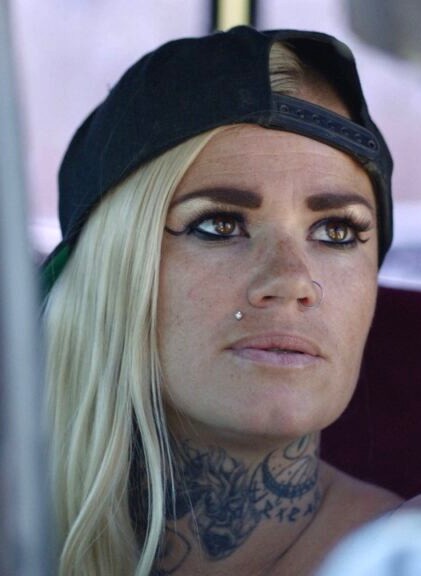
Rancher, Actor, Mother
Tabby was raised between Igloo and Pine Ridge, South Dakota—badlands country. She came up on a
ranch where the wind don’t quit and neither do the women. Ranch life is in her blood—she’s had reins
in her hands since before she could walk, and rodeo dirt under her nails ever since.
A born barrel racer and rodeo girl through and through, Tabby lives for the rush of branding season and
the rhythm of sorting cattle. For the past 18 years, she's passed that grit and grace on—teaching the
next generation of rodeo kids the ropes, the ride, and the respect. But it’s the horses no one wants that
call to her most. The wild ones. The outlaws. The renegades. Tabby rescues and rehabilitates horses
from the reservation and kill pens and gives them a home. She doesn’t shy from a bronc—as long as
it’s pretty. She sells horses across the U.S.—at sale barns, privately off her own ranch, and yes, on
TikTok. But she’s more than a seller—she’s a storyteller. A director in her right, she crafts cinematic
TikToks that capture the raw beauty and thunderous power of her horses. Slow motion, low angles, dust
flying—Tabby will even lie under a horse to get the perfect shot. Tabby lives it full-throttle with a camera
in one hand and a lead rope in the other. EAST OF WALL is her acting debut

Rodeo Barrell Rider, Actress
Porshia has been riding horses ever since she could walk. She's always been tough as nails – barefoot,
bareback and ready to gentle down the wildest of outlaw horses. If you can’t catch it – she can. From
her first race across the pasture at 5 years old, she’s been unstoppable, dominating rodeos in barrels,
poles, keyhole and flags. She and her main mount and best friend Bingo (who was bred to be a cow
horse) have won over 50 buckles together.
Porshia grew up on a cattle ranch and has been sorting,
gathering and helping to doctor and tag calves her whole life. She's drug a few calves to the fire, but
her roping skills are called on more when it comes to working with the wild horses and gentling them.
Porshia starts and trains her own colts and has trained and perfected her own rodeo horses. She has
always given all she has – putting the time, sweat, tears and heart to stay in the game. EAST OF WALL
is her acting debut

Director, Screenwriter, Producer, Actress
Writer and director Kate Beecroft is a Los Angeles native who graduated from the Royal Central School of Speech and Drama in London. Her background in acting has given
her a deep love and respect for those she works with on camera, whether professional or non-actors.
Her feature film debut "East of Wall" premiered at the 2025 Sundance Film Festival, winning the Audience Award, where it was acquired by Sony Pictures Classics.
Kate has been placed on IndieWire’s list of "Sundance 2025 breakouts" as well as a "ReFrame Rise Finalist, 2025 Cohort" for WIF.
Kate was the 2025 recipient of the Adrienne Shelley Excellence in Filmmaking Award.















